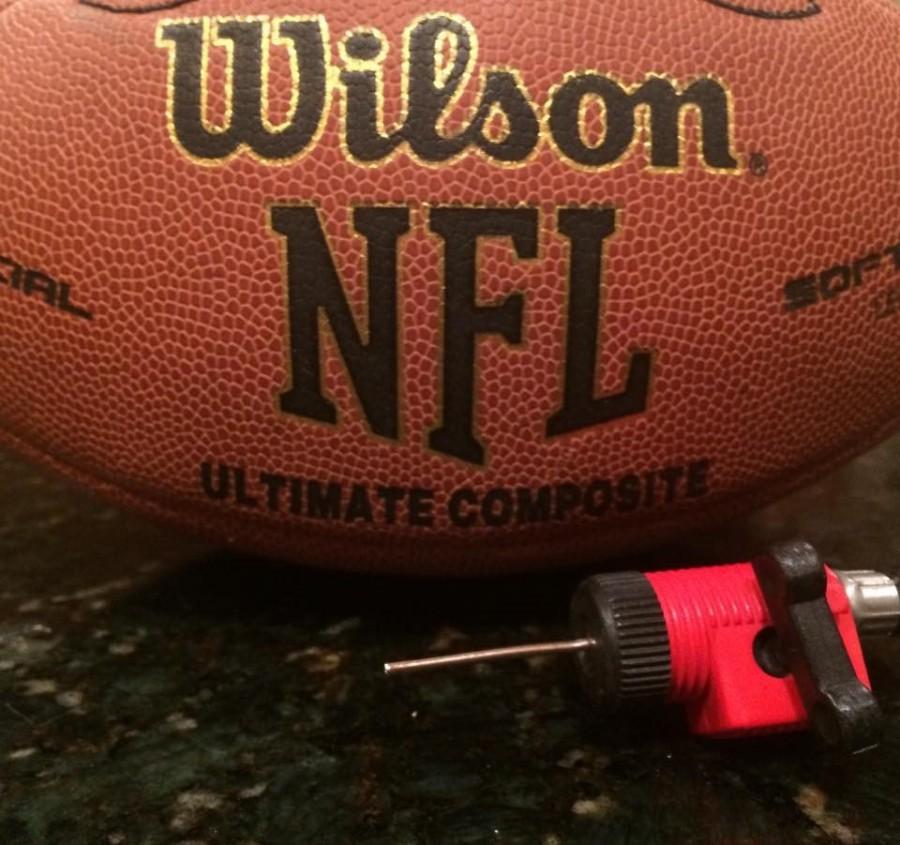Cheaters never win, winners never cheat; really?
Some football teams inflate or deflate footballs depending on their liking.
February 23, 2015
If you’re not cheating, you’re not trying. This old sports adage that rings true today begs the bigger question: When does gamesmanship become a disgrace to the sport?
Prior to the New England Patriots becoming the 2015 Super Bowl Champions, they were accused of using illegally underinflated balls in the AFC championship against the Indianapolis Colts. True cheating is a heinous, shameful act that ruins the integrity of sports. However, sometimes the so-called “cheating” is confused with cunning.
Since the beginning of professional sports, cheating has been prevalent, whether it be steroids or spitballs or spying on practices, but a lot of what leagues consider to be cheating is actually promoted. This is due to the fact that “cheating” is an umbrella word used in far too many situations.
According to a September 2013 PacificStandard.com sports section article, NBA players who can flop or set illegal screens properly are masters of a “veteran move.”
Flopping is considered a form of cheating by the NBA and provokes a fine, but no one would ever consider keeping an NBA player out of the Hall of Fame for flopping the way the MLB excludes players who used steroids. Obviously, flopping is merely a loophole. Although it is frowned upon by the league it is more of a way of getting around rules rather than directly breaking them. It is similar to when a baseball player pretends to have caught a ball directly out of the air even if it slightly bounces, an act that is in no way discouraged by Major League Baseball (MLB) rules.
That is the thin line between resourcefulness and unfair play. It is the line that makes the word “cheating” so ambiguous.
The use of performance enhancing drugs (PEDs) that plagued the MLB through the 1990s and early 2000s has tainted the careers of countless players and left a bad taste in the mouth of fans all around the league. This is because PEDs cross the line and enter the territory of disrespect to the game.
According to John O’Leary’s book, Doping in Sports, the essence of a sport is tainted when the “success or failure” of a competitor is no longer the result of “natural talents.”
Therefore, when Tom Brady uses deflated balls, an MLB pitcher spits on the baseball, or an NBA player fakes a foul, the players’ ability is still the prominent reason that team wins, thus the integrity of the sport is intact.
In professional sports everyone is expected to do whatever they can, whenever they can in order to win. It is the athlete’s sole job to provide victory, and due to the importance of winning in these leagues, bending rules has become commonplace and generally accepted as part of the game. However, not everyone is a professional, so when the type of deceitful play we see from the pros trickles down to the coaches and players of youth athletics, it poses a true issue.
When kids see their favorite professional athletes showing no sportsmanship, they learn it is better to play dirty and win than show sportsmanship and lose, a dangerous message that stains the entire realm of athletics.
In a perfect world there would be never be any cheating, but the professional world of sports is far from perfect. It is understood that most questionable tactics can be overlooked to a certain degree, because there is a good chance that somewhere down the line, the other team is going to do the same thing.
Kids should be learning to play sports strictly by the rules, not learning to emulate the underhanded tactics of athletes with million dollar careers on the line.
According to an April 2014 TheFumble.com article, the issue with this type of play is that kids are getting “pure joy from receiving the call” by the referee, and are doing anything they can to win, whether it’s fair or not.
When people see pros bending the rules, they too begin to believe that playing dirty is fine so long as you win. This is why flopping, using deflated balls, and PEDs are all labeled as cheating. Although bending the rules does not ruin the game the way PEDs do, it encourages a message that damages the purity of sports.
The next time an NBA player sets an unusually hard screen, or a football team tampers with the balls, do not immediately label them a disgrace to the sport, but at the same time do not allow yourself to believe that because it happens in the professional leagues, it is the right way to play the game.


